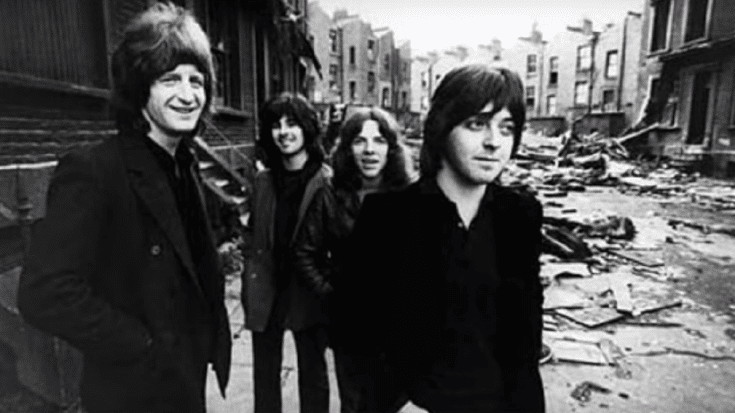The Story of Badfinger And Their Supposed To Be Success

via JJCANE2/YouTube
Badfinger has one of the most tragic stories in rock ‘n roll. They were slated to be the next big thing but a series of bad luck and bad decisions led to one tragedy after another.
The Next Beatles

In the ’60s, they started out as The Iveys and the lineup included Pete Ham, Ron Griffiths, David “Dai” Jenkins, and Roy Anderson. After drummer Mike Gibbins joined the group on March 1965, they began opening for several iconic groups like The Who, The Yardbirds, and The Moody Blues. They usually performed covers from blues to psychedelic pop.
On December 8, 1966, the group signed a five-year contract with their manager Bill Collins giving him 20% of their net income. Jenkins was soon replaced by Tom Evans.
Beatles roadie/assistant Mal Evans discovered them on January 1968. Evans showed their demo tapes to The Fab Four and eventually convinced them to sign up the band. (codingninjas.com) They became the first non-Beatle artists to be signed up on Apple Records.
Their first single didn’t crack the Top 10 in the US and UK. There were already some issues from get-go. According to Apple Records US manager Ken Mansfield:
“We had a great group. We had a great record. We were missing just one thing … the ability to go out and pick up people, and convince them to put their money on the counter.”
In one interview, Griffiths revealed:
“We do feel a bit neglected. We keep writing songs for a new single and submitting them to Apple, but they keep sending them back, saying they’re not good enough.”
After hearing this, Paul McCartney offered them a song called “Come and Get It.” It became a huge hit for The Iveys. It peaked at #7 on the US Billboard Hot 100 and at #4 on the UK Singles Chart. They also decided to change their name to Badfinger .
On October 1969, Griffiths’ departure led to tension between his wife, Tommy Evans and Collins. In 1970, Collins met New York businessman Stan Polley. That point became the beginning of a tragedy.
Under The Management of Stan Polley
After signing up with Polley, he established Badfinger Enterprises, Inc. The contracts he made the band members sign indicated that most of their earnings from touring to recording and even songwriting royalties would go the company which would be controlled by Polley.
Badfinger would belatedly realize that the amount that went into their bank accounts is substantially smaller than their gross earnings. It was his shady practices which subjected the band to financial problems and legal battles later on.
During their 1970 US tour, they were constantly being compared to The Beatles. Nevertheless, they had warm reception from Americans.
Things Started Going Downhill
In 1972, Apple Records was in a bad place. It reached the point where Apple wanted to reduce the band’s royalties. Polley’s other clients were also starting to get suspicious with how he managed their money.
While Badfinger struggled with the recording of their final album for Apple, Polley cut a deal with Warner Bros. Records. The three-year contract required Badfinger to make a new album every six months. Stan Poses, Badfinger Enterprises Inc. vice president, urged the band not to sign the contract and Evans already started getting suspicious of Polley. But in the end, they still signed it.
Polley was supposed to deposit $250,000 to an account as advanced funds – it would be accessible to both Warner and the band. But Polley failed to inform them about the existence of such an account and practically ignored Warner. The money vanished into thin air.
Badfinger’s hands became tied because of ruinous contracts and other legal problems brought about by Polley. Money stopped coming in and Ham only recently bought a house. And his girlfriend was pregnant too. By this time, they could no longer reach Polley.
On April 24, 1975, Pete Ham hanged himself in his garage studio. He was only 27 years old. His suicide note read:
“Anne, I love you. Blair, I love you. I will not be allowed to love and trust everybody. This is better. Pete. P.S. Stan Polley is a soulless bastard. I will take him with me.”
After the group disbanded, Molland and Evans set up and joined other bands but in the end, it didn’t work out. In 1977, both of them were no longer in the music scene. They were left penniless. Molland had to sell his stuff to make ends meet while Evans took on jobs like taxi driving.
Evans, after signing another contract and embarking on a disastrous tour, was slapped with a $5M lawsuit. A day after a heated argument with Molland, Evans hanged himself in his garden on November 19, 1983.
In 2013, the royalty payments were finally settled in court with the revenues shared fairly among the main songwriter and other band members.



















